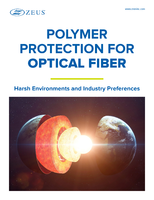IPC Outlines Burdens facing electronics manufacturers.
Share:
Press Release Summary:
In letter to U.S. House Oversight and Government Reform Committee Chairman Darrell Issa (R-CA) dated June 1, IPC identified 4 issues as burdens to industry. These included proposed regulations on conflict minerals being developed by SEC under Section 1502 of Dodd-Frank Wall Street Reform and Consumer Protection Act, EPA Chemical Data Reporting (CDR) rule, EPA's 2011 proposed changes to 2008 DSW rule, and OSHA's expanding authority.
Original Press Release:
IPC Provides Input to U.S. House Oversight and Government Reform Committee
Highlights Federal Regulations that Burden Electronics Manufacturers
BANNOCKBURN, Ill., USA - At the invitation of U.S. House Oversight and Government Reform Committee Chairman Darrell Issa (R-CA), IPC President Dr. John W. Mitchell outlined existing and proposed regulations that negatively impact the electronics manufacturing industry. In a letter to Chairman Issa, dated June 1, IPC identified four issues that significantly burden the industry, further contributing to the continued decline of U.S. employment in the electronics manufacturing sector.
Proposed regulations on conflict minerals being developed by the Security and Exchange Commission (SEC) under Section 1502 of the Dodd-Frank Wall Street Reform and Consumer Protection Act could impose extremely burdensome reporting requirements on manufacturers that use tin, gold, tantalum and tungsten in their products. While IPC supports the underlying goal of Section 1502 which is to address the grave human rights situation in the Democratic Republic of the Congo (DRC), it is concerned that the SEC's draft regulations place a great burden on the private sector with little regard for the impact they will have on small businesses and the relief they will offer the people of the DRC.
The Environmental Protection Agency (EPA) Chemical Data Reporting (CDR) rule which replaced the Toxic Substances Control Act (TSCA) Inventory Update Reporting (IUR) rule is another burdensome regulation with little benefit. It penalizes manufacturers for doing what the EPA and other environmentally conscious non-governmental organizations would normally consider laudable - recycling. By requiring all manufacturers that recycle byproducts to report those byproducts as "new chemicals," the EPA creates burdensome, costly and unnecessary regulatory requirements that discourage recycling. In addition, the Chemical Data Reporting (CDR)/IUR rule results in duplicate, and in some cases triplicate, annual reporting of many of these byproducts which are already reported under the EPA's Toxics Release Inventory (TRI) program and under Resource Conservation and Recovery Act (RCRA) biennial reporting.
The EPA's 2011 proposed changes to the 2008 DSW rule would impose significant regulatory burdens and undermine the goals of the 2008 rule which was to encourage recycling. The recycling of a number of secondary materials streams in PCB and other manufacturing industries would be more fully realized if the 2008 regulatory reforms were not undermined by the regressive 2011 proposal.
IPC also cited its members' increasing concerns that OSHA is stretching the boundaries of their authority to support expansive interpretation and enforcement of OSHA regulations. Two recent court decisions to overturn unwarranted citations and penalties, Caterpillar Logistics Services, Inc. v. Sec'y of Labor, No. 11-2958 (7th Cir., Mar. 20, 2012), and AKM LLC dba Volks Constructors v. Secretary of Labor, Civ. No. 11-1106, are indicative of these issues.
For more information on IPC's concerns in the areas identified, contact Fern Abrams, IPC director of government relations and environmental policy at FernAbrams@ipc.org.
About IPC
IPC (www.IPC.org) is a global industry association based in Bannockburn, Ill., dedicated to the competitive excellence and financial success of its 3,100 member companies which represent all facets of the electronics industry, including design, printed board manufacturing, electronics assembly and test. As a member-driven organization and leading source for industry standards, training, market research and public policy advocacy, IPC supports programs to meet the needs of an estimated $2.02 trillion global electronics industry. IPC maintains additional offices in Taos, N.M.; Arlington, Va.; Stockholm, Sweden; Moscow, Russia; Bangalore, India; and Shanghai, Shenzhen and Beijing, China.




